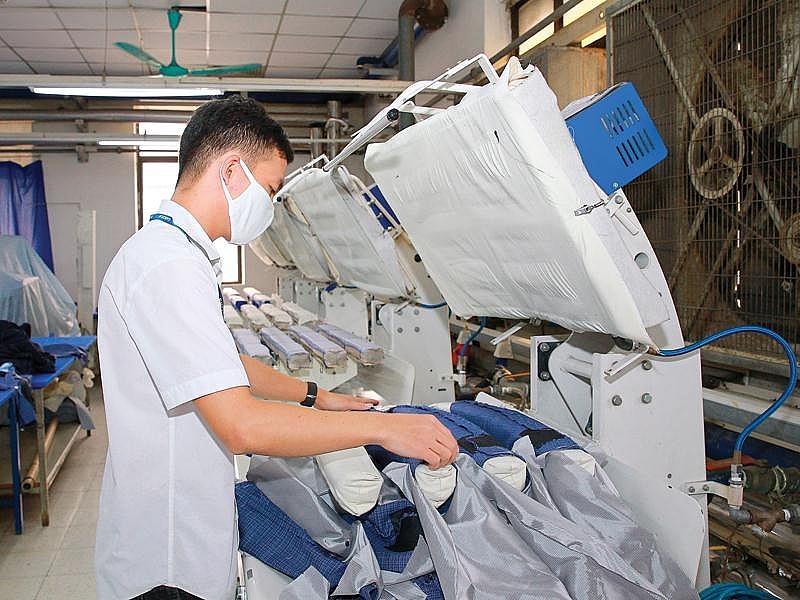Instructions on extension or delay of tax payment by COVID-19
 |
| Businesses set back by the COVID-19 outbreak may be eligible for tax leniency |
Due to the impacts of the novel coronavirus, many businesses suffered great losses and are having difficulties in producing and consuming goods and services, and were unable to pay taxes on time.
According to the newly issued guidelines of the tax authorities, in order to extend the tax payment deadline and receive an exemption from late tax payment fines, enterprises must prove they have suffered "material damage which directly affects production and business due to natural disasters, fires, or unexpected accident.”
The tax authorities define the case of "material damage" as property losses such as machines, equipment, vehicles, supplies, goods, workshops, workplaces, money, or valuable papers.
The "unexpected accident" is a sudden occurrence that happens unexpectedly to taxpayers, caused by an external factor that directly affects production and business. These cases, in addition to situations such as traffic accidents or serious illnesses, among others, also include "infectious epidemics at the announced area of epidemics or other force majeure cases."
In order to enjoy the policy, the taxpayer has to make and send a dossier of request for tax payment extension to their direct tax administration agency, including a written request for tax payment extension, a stocktaking record, an evaluation of material damage, and a written certification from the police office or People's Committee of the commune, ward, or the management board of the industrial park or export processing zone. In addition, taxpayers should send any additional compensation file (if any) confirmed by the insurance agency.
In case of seeking exemption from late tax payment, the taxpayer must also submit a written request and a written certification of the extent of the property damage to the competent agency.
What the stars mean:
★ Poor ★ ★ Promising ★★★ Good ★★★★ Very good ★★★★★ Exceptional
 Tag:
Tag:
Themes: COVID-19
- 67 million children missed out on vaccines because of Covid: UNICEF
- Vietnam records 305 COVID-19 cases on October 30
- 671 new COVID-19 cases recorded on October 1
- Vietnam logs additional 2,287 COVID-19 cases on Sept. 21
- People’s support decisive to vaccination coverage expansion: official
Related Contents
Latest News
More News
- Japanese business outlook in Vietnam turns more optimistic (January 28, 2026 | 09:54)
- Foreign leaders extend congratulations to Party General Secretary To Lam (January 25, 2026 | 10:01)
- 14th National Party Congress wraps up with success (January 25, 2026 | 09:49)
- Congratulations from VFF Central Committee's int’l partners to 14th National Party Congress (January 25, 2026 | 09:46)
- 14th Party Central Committee unanimously elects To Lam as General Secretary (January 23, 2026 | 16:22)
- Worldwide congratulations underscore confidence in Vietnam’s 14th Party Congress (January 23, 2026 | 09:02)
- Political parties, organisations, int’l friends send congratulations to 14th National Party Congress (January 22, 2026 | 09:33)
- Press release on second working day of 14th National Party Congress (January 22, 2026 | 09:19)
- 14th National Party Congress: Japanese media highlight Vietnam’s growth targets (January 21, 2026 | 09:46)
- 14th National Party Congress: Driving force for Vietnam to continue renewal, innovation, breakthroughs (January 21, 2026 | 09:42)






















 Mobile Version
Mobile Version